


I am a firm believer that storytelling is an integral part of being human. Stories not only allow us to learn more about a person, but to learn lessons from their experiences. I must credit Laura Gherman from the outset for being vulnerable and open in telling me her story, which is certainly one from which lessons can be learned.
Despite knowing Laura for a couple of years, I had no idea that her story would be one of battling depression and mental health issues. Born and raised in Romania, Laura moved to Guernsey 12 years ago and spent half of that time working in hospitality.
“I was doing everything from scrubbing toilets to organising big events; I have never been someone who shies away from hard work,” said Laura.
“After five or six years in hospitality, I was exhausted. I was beginning to know the island better and I realised that there were other opportunities for me, so I took a job as front of house for an investment company. I loved my time there, my role and the people in the office, but I reached a point where I felt that it wasn’t for me.”
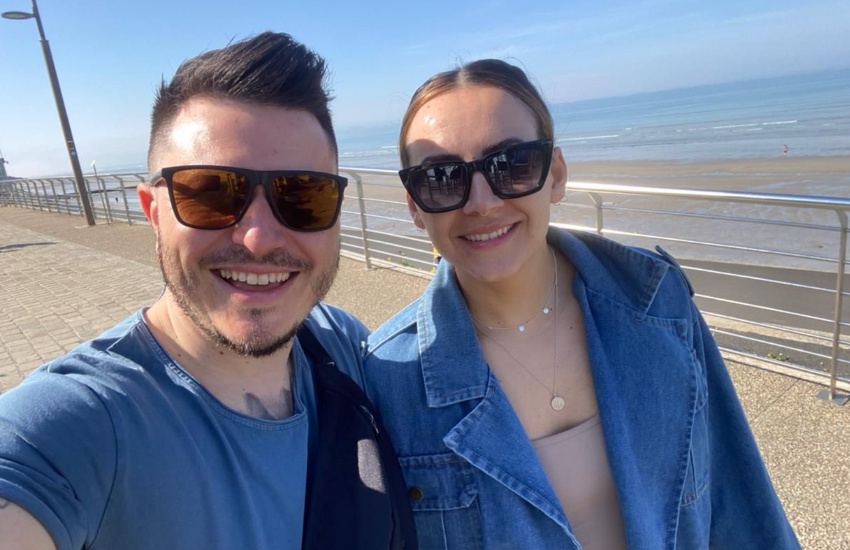
Pictured: Laura met her partner, Vlad, in Guernsey although they are both from Romania originally.
Laura explained that, during her time in the office environment, she started to have “meltdowns”.
“I wouldn’t even realise why it was happening. I would get irritated if reception was left unmanned or if the phone wasn’t answered within the first three rings. I would end up in tears and people would ask if I was ok and I kept saying I was fine,” she said.
“I hadn’t even heard about mental health until I was in Guernsey. There is a cultural difference in Romania, the mentality is very much ‘just get on with it’, ‘don’t think about it’, ‘if you can’t see it then it doesn’t exist’.
“I have noticed that there is a similar culture within some offices here. People make comments like ‘if you think you’re busy you should see my workload’, and that reinforced my thinking that my problems were my problems and I would be a burden if I started to share what is going on.”
Laura recalled “bottling up” her feelings, which eventually became uncapped during an argument with her partner of 12 years, Vlad.
“I will always remember that moment so vividly. We were arguing and Vlad asked what was wrong with me and I said: ‘I don’t know but something is not right’,” she said.
“It was a scary realisation to admit I have no idea what’s going on, but I’m not ok. I didn’t know how to put into words what I was feeling and I went from one extreme to the other in my personal life."
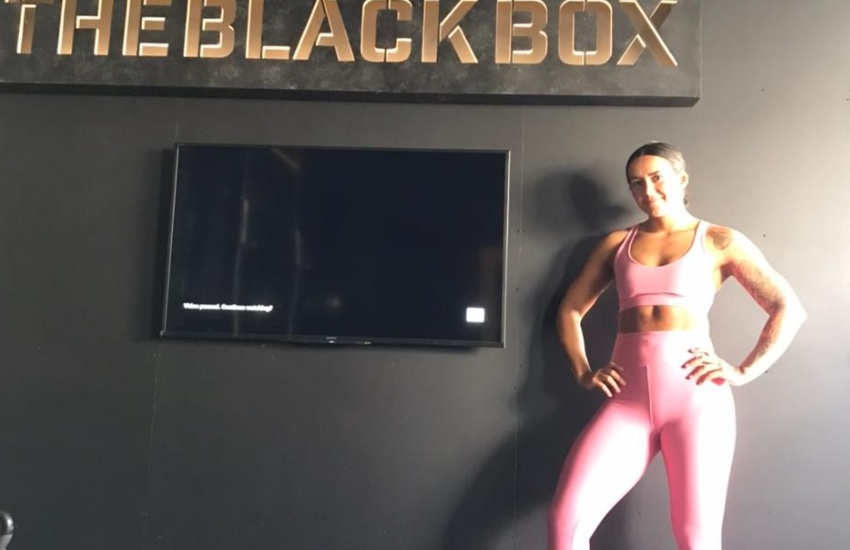
Pictured: Laura works full-time as a personal trainer. She said she experiences "a rollercoaster of emotions" in the role.
Laura continued: “I had spent weeks on end going out every weekend drinking, smoking and eating junk food. I realise now that was an outlet that I was using to numb everything I was trying to supress. Things then changed and I spent weeks on end avoiding people, cooped up in my bedroom watching Netflix.
“At work I made sure I had the biggest smile, was the loudest in the room, and was cracking jokes left right and centre so that no one would know what was going on.”
Laura said that, at the time, she had no idea what was happening to her.
“I don’t know why or how I got to that place, but I didn’t spend much time thinking about why because I was too scared about what might come up,” she said.
“I eventually started seeing a therapist and that made me realise that I was burnt out and anxious and had a slight form of depression. I understand there are so many other people that have it a lot worse, but for me it was scary being alone with my thoughts.”
Laura recalls having regular thoughts about death. “I would be walking down the street and think that a car could hit me at any minute and that would be the end,” she said.
“I didn’t know that other people weren’t having those regular thoughts. I didn’t talk about things because I had a massive ego problem with vulnerability; I thought people would think I was weak.
“Once I found the courage to open up to the people around me and told them my thought processes, their reactions to what I was saying scared me and I realised that it was not common to have the thoughts I was having.
“I know my mum had had some therapy sessions and I have taken that as an opportunity for us to connect. She was quite scared at the things I was saying, but I explained to her that I was not suicidal, I was having thoughts about death.”

Pictured: Laura said she did not know anything about mental health until she moved to Guernsey 12 years ago.
Laura said that, through therapy and working on her mental wellbeing, she has recently had a realisation about why she had regular thoughts about death.
“I think a lot of my thought processes can be linked back to Romanian culture. We don’t accept death as a part of life,” she said.
“I was recently talking to a friend about grieving processes and I recalled my experience of my grandmother passing away 15 or 16 years ago. At that time in Romania, when someone passed away, after their body was released the family would keep the body in the house for three days and people will come round to pay their respects.
“The reason for this was never explained to me; it was just something you had to accept. I was around 16 years old when my grandmother passed and it was a shock to have her in the home without any explanation.
“I refused to go into the room with my grandmother until my family pressured me into it, saying that it was something I had to do. I still remember seeing her on the dining room table and I cried and screamed. In Romania, death is very focused on the grieving process and that has stayed with me.”
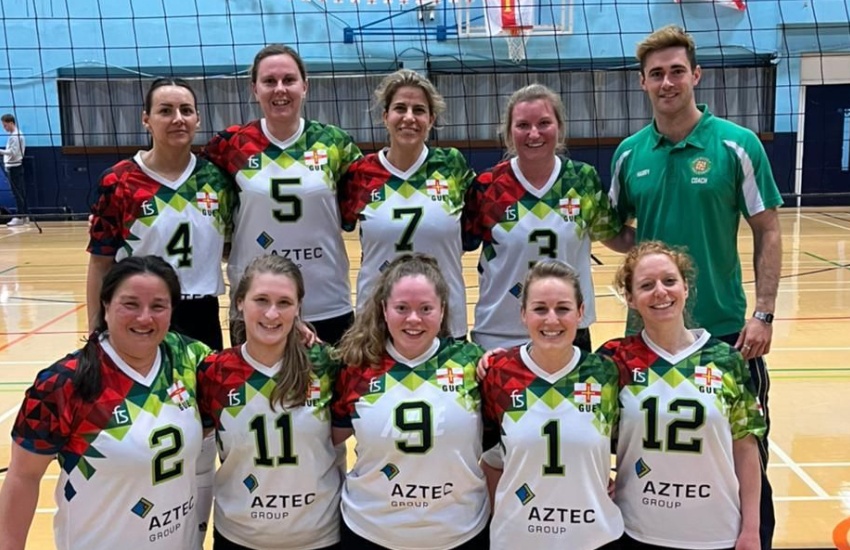
Pictured: I met Laura two years ago through volleyball. She is pictured above with the island ladies' team.
Laura said it had been beneficial for her to experience the cultural differences surrounding death in Guernsey.
“Coming to Guernsey helped me a lot because the culture here is to incorporate death into life and funerals are often about celebrating life. That is helping me to understand death is part of life and that it can happen at any time to anyone,” she said.
“That understanding made me realise that I want to live my life my way. I wanted more from life than showing up to work and booking meeting rooms or booking flights. I was trapped in the thought process that you get a job, you moan about your job, but you get on with it.
“I was miserable going to the office day in and day out and I reached the point where I couldn’t bottle up my emotions anymore and that triggered everything I had been supressing.”
Laura explained that her mental health had a significant impact on her relationship with Vlad.
“Vlad and I have been through different phases in our relationship. I have always been drawn to him and his energy, but we have certainly had our ups and downs,” she said.
“There have been a few instances where it was clear something wasn’t working and we needed to decide whether to call it quits or work on it. At the time, I didn’t realise the role my mental health was playing in those difficulties."

Pictured: In the midst of her mental health problems, Laura would avoid any activity, but has since returned to enjoying an active lifestyle.
Laura continued: “We used work and our conflicting schedules as an excuse; it was easy for me to blame it on him working all the time. He was working in hospitality and I was in the office so my weekends were free and he was busy. Instead of staying home alone I would go out drinking.
“We have been through the cycle of not spending time together and you distance yourself from that person and then think ‘what’s the point?’”
Laura said that the circumstances “forced” her and Vlad to have “very serious, honest and hurtful conversations”.
“We had to figure out what was going on, what I needed to change, what he needed to change and how we could come back together. We did that and thought we were past it, but the same thing started to happen when my mental health issues finally came to a head,” she said.
“Vlad would ask me to do anything with him, even just go for a walk, but I was so stuck in a victim-like mentality that I thought he didn’t understand what I was going through. I took it out on him and punished him for it by not spending time with him.
“It took us back to a place of need to decide whether we would fix things or call it quits. We both realised we do want a future together and that we needed to work through our problems.”
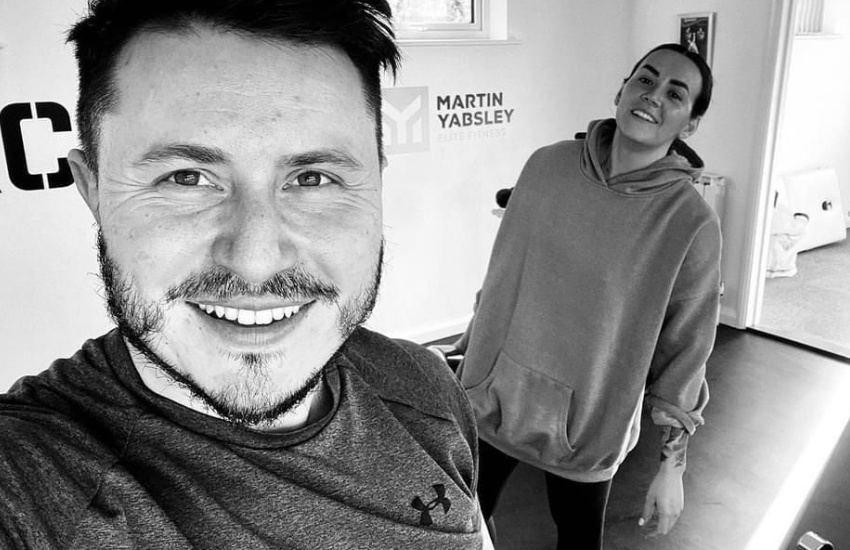
Pictured: Laura said she has developed "a deeper connection" with Vlad after opening up to him about her mental health.
Laura said that therapy helped her to realise that her mental health struggles were a contributing factor in her relationship problems.
“Therapy allowed me to realise that I wasn’t being open with Vlad or allowing him the opportunity to understand what I was going through,” she said.
“I have started being open to him and telling him how I feel, which has helped. Even if he doesn’t know what to say or how to react, at least he listens. A lot of the time that is what I need. I don’t expect him to understand everything but it makes my process easier to voice what I’m feeling and the thoughts I’m having.”
Laura said that opening up to Vlad has allowed them to develop a “deeper connection” and that “there is no shame in approaching any subject as a couple”.
“Being open with Vlad has also forced us to learn how to argue better. Before I had so much anger in me that I would take it out on him. Even if I didn’t like the way he walked into a room I’d tell him to leave; of course, he didn’t know what was going on,” she said.
“We still fight, but we understand that if one of us snaps then we take time to cool off then come back and talk about it. We used to just argue and then say we would make up but we would never get to the route of the problem."

Pictured: Laura said her attitude towards her body changed as she regained confidence through personal training sessions with Martin Yabsley.
Laura continued: “My experience has made Vlad a lot more aware of his emotions. He has a strong mind and is so resilient. It’s inspiring but sometimes annoying because I’m waiting for his meltdown but it doesn’t come. He is more in tune with what’s going on.
“We both realised quite quickly that our relationship is something we want to work on and we will do what it takes. If it gets too much then we would call it quits.”
Laura believes that the culture of dating apps has resulted in people quickly dismissing potential partners and “moving on to someone new” when challenges arise.
“I knew very early on that Vlad is the person for me and we aren’t willing to just throw that out the window,” she said.
“My struggles have brought us closer together because it was so reassuring for me that, although I couldn’t put into words what I was going through sometimes to help him understand, he stood with me and that’s what I needed.”
Laura said that her mental health problems also had an impact on her physical health.
“With everything that was going on, I gained a lot of weight and I was miserable. I was at a very low point where I was disgusted with what I would see in the mirror. I was disgusted when Vlad would compliment me because I didn’t believe it. I couldn’t understand how he would want such a disgusting person,” she said.
“Eventually I thought ‘enough is enough’. I needed help but didn’t know where to start myself, so I started having personal training sessions with Martin Yabsley. It was a long process but he helped me regain confidence so that I could go back to the gym by myself. I have been hooked ever since."
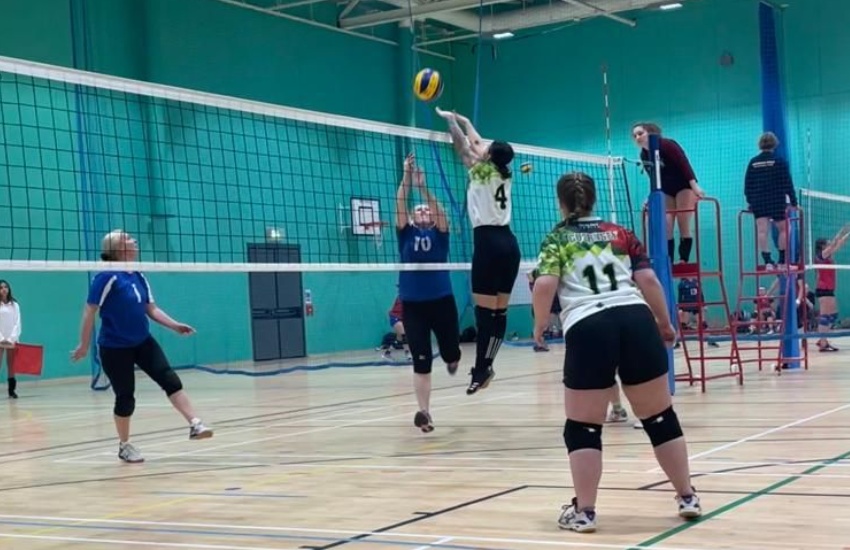
Pictured: Laura said that she now trains because she loves her body and wants to look after it, instead of training to try and change it.
“Training became a non-negotiable for me, I would show up day in and day out no matter how I was feeling. Besides my relationship with Vlad, it was the thing I knew I could rely on," said Laura.
“My body started changing and I stopped hating my body and wanting to change it, to thinking that my body is amazing and I’m training to look after it the best I can.”
As Laura’s relationship not only with Vlad, but with herself, improved she started to reflect on what she wanted in life.
“I went inwards and thought about what I want from life, what my goals are, what I could bring to the community and how I could help make real change in other people’s life. I realised the answer was getting into personal training (PT),” she said.
“While still working in the office I attained a level two gym instructor qualification and level three personal training qualification. I reduced my office hours so I would see PT clients in the morning, go to the office, then see more PT clients in the evening.
“I became quite comfortable because I had a secure income from my office job and I loved working with my PT clients, but I knew that it was not about comfort, it was also about being too scared to take the leap to working for myself full-time.
“I had no idea what it means to run my own business and I still had negative mental chatter about why anyone would come to see me as a PT and who did I think I was to be working for myself. Before long, I felt that I was taking backwards steps and that’s what pushed me to just take the leap.”
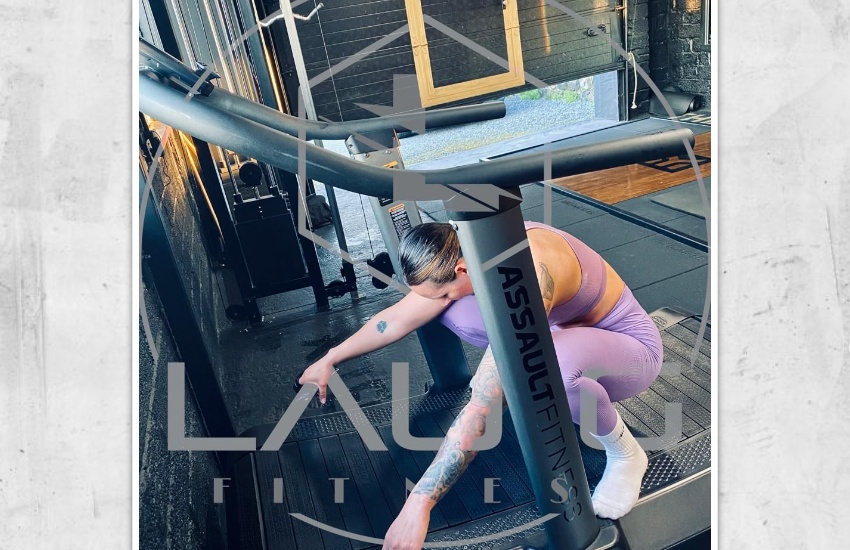
Pictured: Laura said she is focussing on making a success of her business, Lau G Fitness, to continue supporting her clients.
After working a three-month notice period in her office job, Laura started working full-time as a PT last August.
“Life as a PT is crazy; I go through a roller coaster of emotions daily, but I love it. All my clients bring their own energy and mind frames and our sessions need to address that. It does take it out of me somewhat, but I sleep good at night,” she said.
“I had some clients already and more people started coming, but I didn’t take into consideration that some people will only want to do 10 sessions with me, or life will get in the way and people will drop their sessions.
“When I started I wasn’t as open to change as I am now. I have an organisational background keeping calendars for directors with everything planned to the minute, then suddenly I was in a position where my phone is pinging all day with clients asking to come earlier or later or on a different day.
“I have to be flexible. It’s an area I wanted to explore and I wanted to be less ridged in my schedule. I knew I had to do something about it and I think I was handed that lesson. Now I have an idea of what my day looks like, but I never know how it will end; I have found the excitement in that.
“I love my clients and being able to facilitate even 45 minutes for my clients to have for themselves is my reward. It is my business so, of course, I need to also have the financial side, but the money isn’t the reward, the impact I have on people is the reward.”
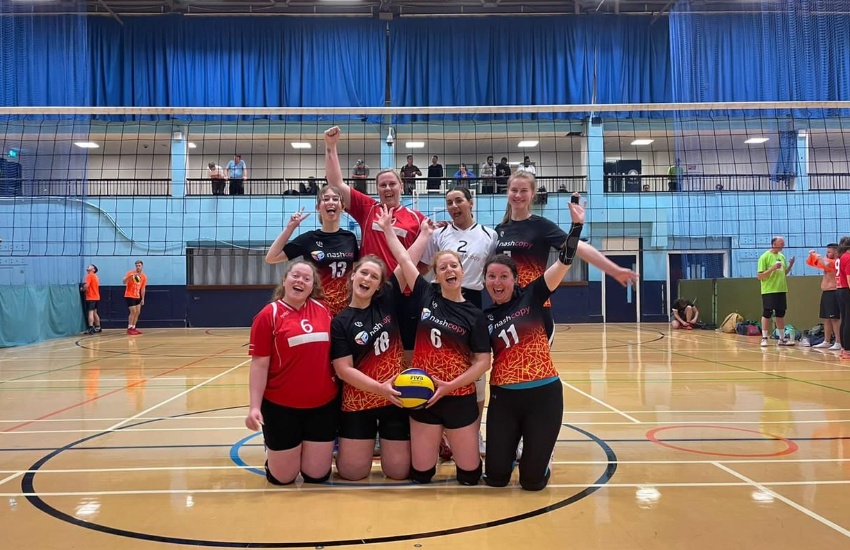
Pictured: Laura pictured with one of her women's volleyball teams.
I asked Laura what the future had in store, and she excitedly declared: “I have absolutely no idea”.
“A couple of years ago I would have hated that question, but now I am happy to say there is no structured plan for the future. I am taking time to work out what qualifications I can take to better help my clients, and understand what my business needs,” she said.
“I want to push my business forward, but without shoving it in people’s faces too much. Some people have asked me why I don’t put educational content on social media. For me, social media is for entertainment.
“The clue is in the name; it is personal training. I couldn’t post something that would be applicable to absolutely everyone because sessions are tailored to individuals.”
On reflecting on her own mental health journey, Laura said she would encourage anyone who is struggling to “talk”.
“Talk to someone, anyone. Don’t assume that people who know you will know that you are going through certain things,” she said.
“Be as vulnerable as you can because most, not all, of the time that vulnerability will be matched. People will feel comfortable and at ease to open up to you and that’s when you build deeper relationships.
“Too often people just chit chat, but you never know how much a proper conversation could help someone. “
POPPY'S PEOPLE: A sunny disposition through stormy weather
POPPY'S PEOPLE: The lives of Liam Doherty
Comments
Comments on this story express the views of the commentator only, not Bailiwick Publishing. We are unable to guarantee the accuracy of any of those comments.